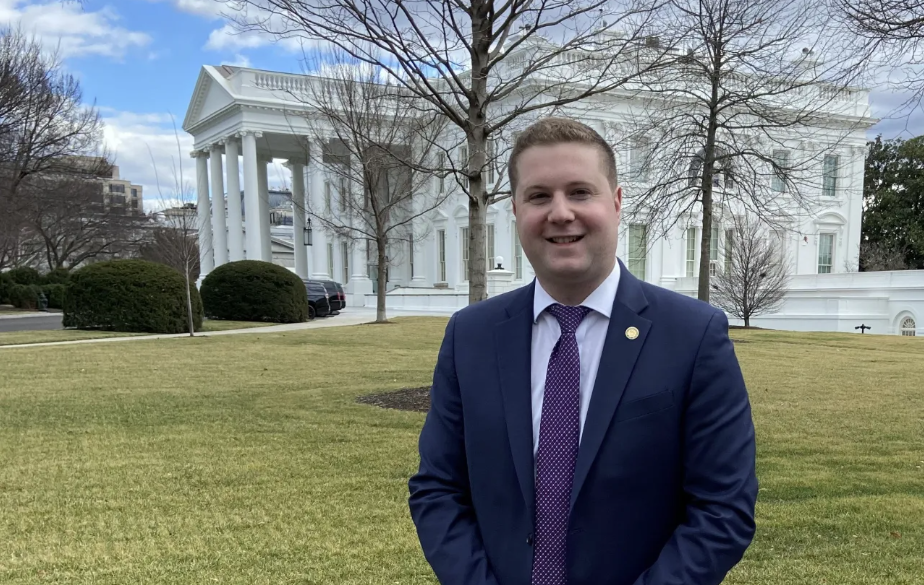Last week, Binghamton Mayor Jared Kraham joined over 300 Mayors in Washington D.C. at the U.S. Conference of Mayors’ 92nd annual winter meeting.
With over 1,400 members, the conference is the main nonpartisan organization for cities with over 30,000 residents. It was founded in 1932 by then-Detroit Mayor Frank Murphy during the Great Depression to facilitate collaboration between Mayors to tackle various issues faced in the country’s urban centers. Mayor Hillary Schieve of Reno, Nevada is the conference’s current president, and Tom Cochran is its chief executive officer.
Beginning on Jan. 17 and ending on Jan. 19, the itinerary for the three-day conference included discussions and panels with Mayors on pressing issues relevant to many cities, including public safety, housing, homelessness, infrastructure, reproductive access and more. It consisted of addresses from President Joe Biden, Vice President Kamala Harris, congressional representatives and members of the cabinet.
Kraham, who attended the conference for the third time, spoke highly of the yearly convening and of his goals to travel to D.C. to meet with both fellow Mayors and federal officials.
“The general scope of the conference is a series of meetings and interface with other Mayors and also [hearing] directly from top officials regarding the needs of cities,” Kraham said. “It’s a great networking event, and there are a lot of great ideas shared.”
He added that the conference offers an opportunity for bipartisan collaboration between Mayors and federal officials and as Mayors, they are not involved in “ideological disputes.” He said that Mayors are held accountable by the residents they represent to take care of local services like plowing the streets, paving roads or picking up garbage.
“There are three different types of political ideologies in America — Republican, Democrat and Mayor,” Kraham said. “At the conference, nobody talked about their partisan affiliation nor does it matter because the issues of the cities are similar across the country and it does not matter if the solutions are coming from Democrats or Republicans.’’
Biden, whose run for president was grounded in returning bipartisanship and civility to politics, mentioned key issues affecting municipalities nationwide, including infrastructure, the economy and housing, emphasizing the role Mayors play in local issues.
“The fact is, you’re answering key questions people ask every day — ‘Is my neighborhood safe?’ ‘Is it going to be OK?’” Biden said. “Will this bus get me to work on time? You know, my kids — ‘will they [have] a good future in this town?’ ‘Am I able to stay in my hometown.’ Folks, I made a commitment to be a president for all Americans, […] whether you voted for me or not. [I] mean it sincerely.”
He added that the federal investment of American Rescue Plan Act funds in local public safety has been significant in policing, community policy and gun violence prevention.
Kraham, who won the Mayorship in 2021, said that his top three initiatives for 2024 are public safety, housing and neighborhood quality of life issues, like investments in city parks and targeting properties that are bringing down the quality of life in their neighborhoods. Binghamton is one of the first cities to have a pro-housing community designation from New York state.
Logan Blakeslee ‘23, a Binghamton resident active in local politics and the former secretary of BU’s College Republicans, agreed that tackling the issue of housing was a priority for the city in the coming year.
“At this point, Binghamton is beset by landlords and business owners that craft favorable deals for themselves and no one else,” Blakeslee wrote. “Housing insecurity and corruption worsen crime and homelessness, so it is important to tackle the root of the problem.”



